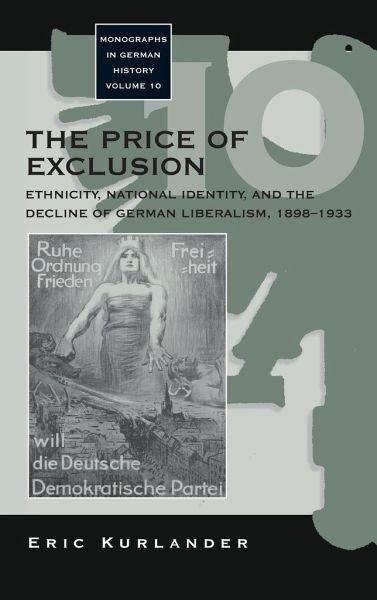
The Price of Exclusion
Ethnicity, National Identity, and the Decline of German Liberalism, 1898-1933

PAYBACK Punkte
73 °P sammeln!
"The failure of Liberalism" in Germany and its responsibility for the rise of Nazism has been widely discussed among scholars inside and outside Germany. This author argues that German liberalism failed because of the irreconcilable conflict between two competing visions of German identity. In following the German liberal parties from the Empire through the Third Reich Kurlander illustrates convincingly how an exclusionary racist Weltanschauung, conditioned by profound transformations in German political culture at large, gradually displaced the liberal-universalist conception of a democratic ...
"The failure of Liberalism" in Germany and its responsibility for the rise of Nazism has been widely discussed among scholars inside and outside Germany. This author argues that German liberalism failed because of the irreconcilable conflict between two competing visions of German identity. In following the German liberal parties from the Empire through the Third Reich Kurlander illustrates convincingly how an exclusionary racist Weltanschauung, conditioned by profound transformations in German political culture at large, gradually displaced the liberal-universalist conception of a democratic Rechtsstaat. Although there were some notable exceptions, this widespread obsession with "racial community [Volksgemeinschaft]" caused the liberal parties to succumb to ideological lassitude and self-contradiction, paving the way for National Socialism.













